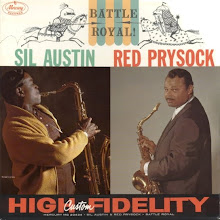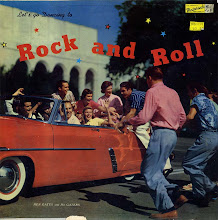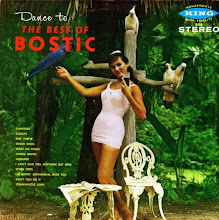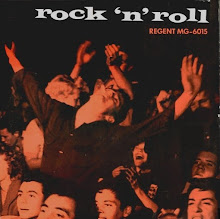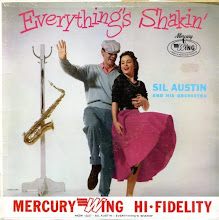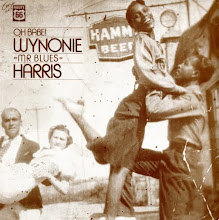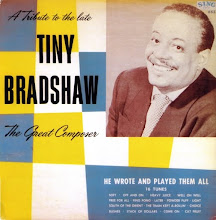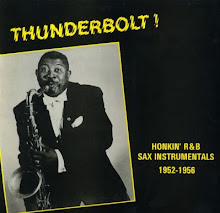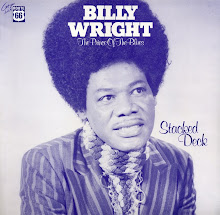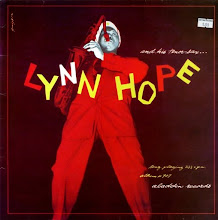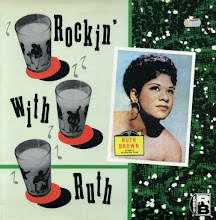 |
| UK 45 rpm issue of Thirteen Women / Rock Around The Clock |
Listen to "(We're Gonna) Rock Around The Clock" and "Thirteen Women":
In “Destination Rock And Roll!” we had a look at how Bill Haley And His Comets evolved from a country band into a rock and roll band while recording for the Philadelphia based Holiday and Essex labels owned by Dave Miller. Having scored a hit on the national pop chart with “Crazy Man, Crazy” in May of 1953, the band’s further releases on Essex failed to match this unexpected success and in the spring of 1954 Bill and the boys signed for Decca after their contract with Miller had lapsed.
And so we arrive at the Pythian Temple in New York City. This imposing art deco building was the headquarters of the New York chapters of the Knights of Pythias, a fraternal order bearing similarities to the Freemasons. We shall ignore, if that is possible, the honeycomb of hidden chambers in which secret and no doubt dreadful ceremonies took place and pass further in to the building to a ballroom in which Decca had installed a recording facility in the 1940s.
And there, on the 24th April, 1954, Milt Gabler, who had produced many Louis Jordan hits at the same venue in the 1940s, awaited Bill Haley And His Comets who were due for their first Decca recording session. Two songs were lined up: the A-Side was to be a cover of a minor R&B novelty “Thirteen Women And One Man” which had been written and recorded by Dickie Thompson. Released on Herald in March, 1954, the song had been the subject of a radio ban due to unfortunate implications in the lyrics. The less than pure of mind may have concluded that the song was a description of a sportin’ dude living off the earnings of a group of affectionate ladies but it is unlikely that this was the intention of the songwriter.
However, Milt Gabler had taken the precaution of rewriting the lyrics to give the one guy and a load of dames scenario a new and more innocent context – they were now the happy survivors of a nuclear holocaust. And anyway the whole thing was a dream.
The B-Side was to be “Rock around The Clock,” a number which had been part of the Comet’s live repertoire since the summer of 1953. Co-credited to Max Freedman and Jimmy DeKnight (real name Jimmy Myers), “Rock Around The Clock” borrowed the melody of Hank Williams’ “Move It On Over” and allied it to lyrics on a theme that had emerged in R&B a few years back – round the clock jivin’ (in the shape of dancing or romancing) – especially in various versions of “Around The Clock Blues” recorded by Jimmy Rushing, Wynonie Harris and Big Joe Turner. Let’s be honest here - these guys weren’t singing about dancing, but Bill Haley was.
Unfortunately, the Comets had been unable to record “Rock Around The Clock” owing to a dispute between Essex Records owner Dave Miller and the song’s co-writer Jimmy Myers. Thus the first recording of the song was by another Philadelphia based combo, Sonny Dae and His Knights, on a small local label, Arcade Records.
The Comets’ move from Essex to Decca cleared the way for them to finally make their own recording of “Rock Around The Clock.” The personnel who arrived somewhat belatedly at the Pythian Temple (due to a ferry breakdown) to record what would eventually become the number which most people now think of as THE 1950’s rock and roll hit were the Comets regular line up of: Bill Haley (vocals, guitar), Joey D’Ambrosio (tenor sax), Johnny Grande (piano), Billy Williamson (steel guitar), Marshall Lytle (bass) and Dick Richards (drums). Danny Cedrone, who had played on earlier recording sessions with the band, was drafted in once more to play lead guitar. Dick Richards made way for session drummer Billy Gussak but stuck around to help familiarise the session man with Haley’s preferred drum parts on “Rock Around The Clock.”
Not being part of the regular Comets line up, Danny Cedrone was unfamiliar with “Rock Around The Clock.” As the session was somewhat rushed, he had no time to work out a new solo part, but opted to reproduce note for note the solo he had recorded on Haley’s cover of “Rock the Joint” a couple of years back, this time to even more brilliant effect.
 |
| 1954 US release of "Rock Around The Clock" |
A few months later Bill Haley And His Comets finally got that follow up hit to “Crazy Man, Crazy” when their cover version of Big Joe Turner’s R&B hit “Shake, Rattle And Roll” crashed into the pop charts in August 1954, reaching number 7. Towards the end of the year the record reached number 4 in the UK pop charts, spending 14 weeks in the Hit Parade. A quick follow up UK release of “(We’re Gonna) Rock Around The Clock” was much less successful, reaching number 17 and only spending 2 weeks in the chart in January 1955.
“Shake, Rattle And Roll” was recorded on the 7th June 1954 at the Pythian Temple with the same personnel as the “Rock Around The Clock” session with the exception of session drummer Billy Gussak, who was replaced by Panama Francis. Tragically one of the musicians didn’t live to see the success of the record. On 17th July 1954 guitarist Danny Cedrone was killed in a bizarre accident when he fell down the stairs of a Philadelphia restaurant where he had gone to buy his wife a sandwich.
The credited composer of the original version of “Shake, Rattle And Roll” which had been an R&B hit for Big Joe Turner in April 1954 was Charles Calhoun, a pseudonym for Atlantic Records producer Jesse Stone. The song consisted of a series of standard and at times raunchy blues verses of the kind which Big Joe had been belting out since his barroom bawling days in Kansas City way back in the 1930s.
For the Bill Haley release some of the raunchier lines were dropped. Stuff like “Wearing low dresses, the sun comes shining through … I can’t believe all that mess belongs to you” and “Over the hill, way down underneath … you make me grit my teeth” was dropped in favour of much more innocuous lines – have a listen for yourselves. Yet somehow the most graphic line of all was left in – “I’m a one-eyed cat peepin’ in a seafood store.” Rock and roll historians usually say that the line survived because no-one at the Comets session understood it. I prefer to think that it was left in because Bill Haley was a one eyed cat – thanks to botched eye surgery when he was a kid.
In the meantime “Rock Around The Clock” was on the first Bill Haley LP and EP which were released in late 1954. The next single release, “Dim, Dim The Lights” entered the US pop charts in November 1954, reached number 11 and spent 15 weeks in the charts. In the spring of 1955 the two sided hit “Mambo Rock” / “Birth Of The Boogie” was less successful, with the bigger seller of the two, “Mambo Rock,” reaching number 17 and spending only 8 weeks in the chart. However in May 1955, more than a year after being recorded, “Rock Around The Clock” was back and it was an enormous hit.
 |
| 1955 US re-issue of Rock Around The Clock |
By September 1955 The Comets not only had two million selling records to their name, they were playing to huge audiences in big venues. The money was pouring in, but now the financial structure of the band caused an inevitable break up. As mentioned in “Destination Rock And Roll,” The Comets consisted of four business partners and the rest were salaried employees. The partners who shared in the financial good fortune were Bill Haley, Billy Williamson, Johnny Grande and manager Lord Jim Ferguson. The other members of the band – Joey D’Ambrosio, Dick Richards and Marshall Lytle were on salary and even after the band hit the big time no proportionate salary increase was forthcoming. This was particularly hard on Marshall Lytle who had been in the band since they were The Saddlemen.
The three non- partners left The Comets and formed a new band, The Jodimars (JOey, DIck, MARShall), which immediately secured a contract with Capitol Records. Bill Haley, Johnny Grande, Billy Williamson and recently recruited lead guitarist Franny Beecher remained as The Comets. Tenor sax player Rudy Pompilli, bass player Al Rex (who had been in The Saddlemen before Marshall Lytle) and drummer Ralph Jones were recruited to replace the departees.
The Comets story continues in a series of upcoming posts, thanks to a generous donor of EPs. I promise less words and more music. Honest injun. In the meantime you can hear many of the tracks mentioned in this post by downloading this homemade comp:
Tracklist:
01. Around The Clock Part 1 - Wynonie Harris
02. Around The Clock Part 1 - Big Vernon
03. Rock Around The Clock - Sonny Dae & His Knights
04. Move It On Over - Hank Williams
05. (We're Gonna) Rock Around The Clock - Bill Haley And His Comets
06. Thirteen Women And One Man - Dickie Thompson
07. Thirteen Women - Bill Haley And His Comets
08. Shake, Rattle And Roll - Joe Turner and his Blues Kings
09. Shake, Rattle And Roll - Bill Haley And His Comets
10. Later For You Baby - Guitar Slim
11. Later Alligator - Bobby Charles
12. See You Later, Alligator - Bill Haley And His Comets
Download from here:
Thanks to Joan K for the US scans and the Lawson Family for the UK scans.
It’s already been recommended, but here it is again – a book which every fan of early rock and roll needs to have:
“Rock Around The Clock” by Jim Dawson. It was the main source of info for this post, along with “The Billboard Book of USA Top 40 Hits”, “The Guinness Book of British Hit Singles” (New Musical Express charts), “The Top Twenty Book: Thirty Years of Hits” compiled by Tony Jasper (Music Week charts) and last but far from least, Chris Gardner’s Bill Haley Database.























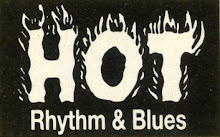
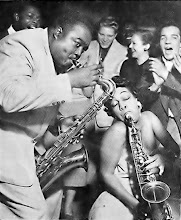




.jpg)



%2045%20-%20300A.png)















